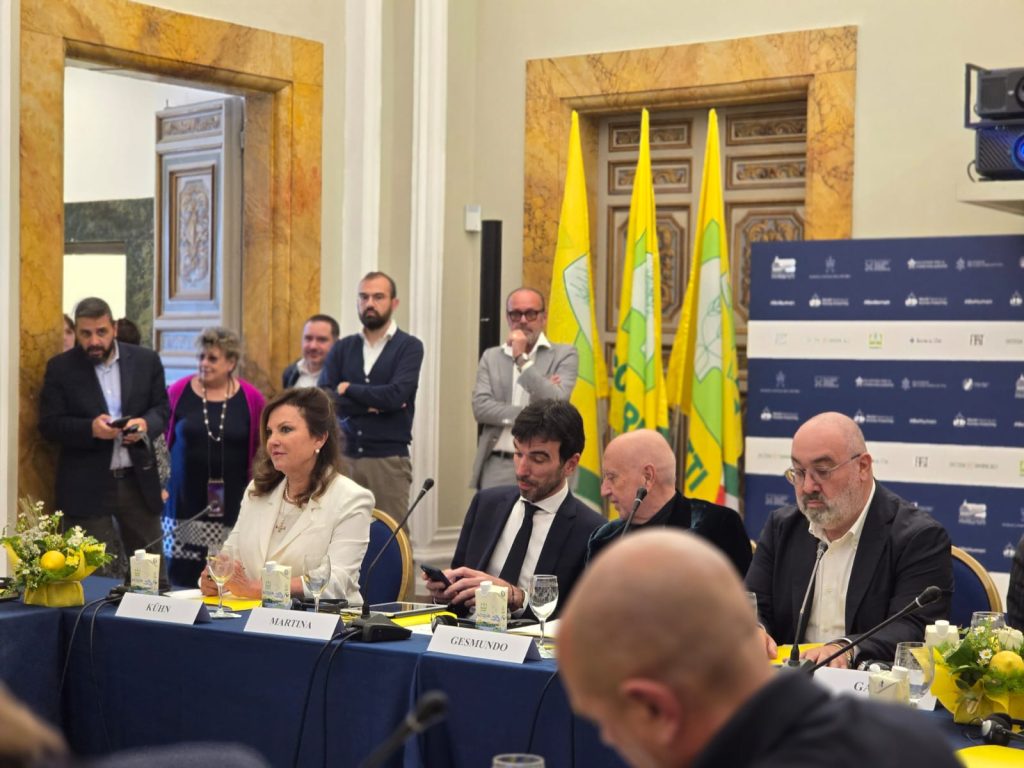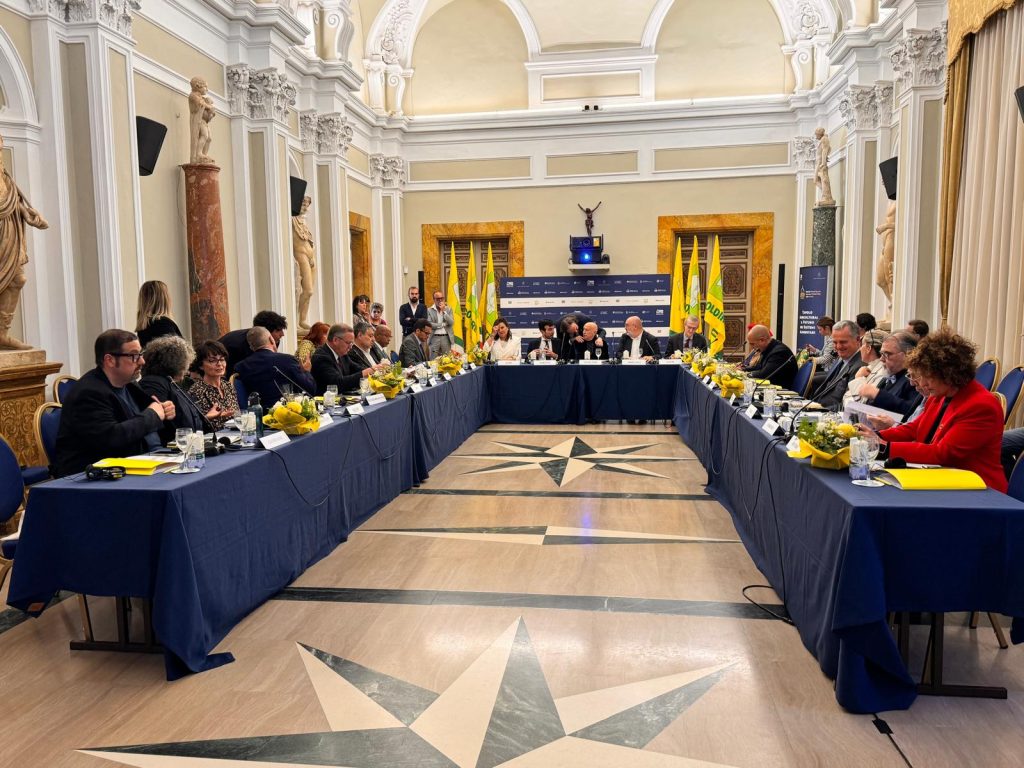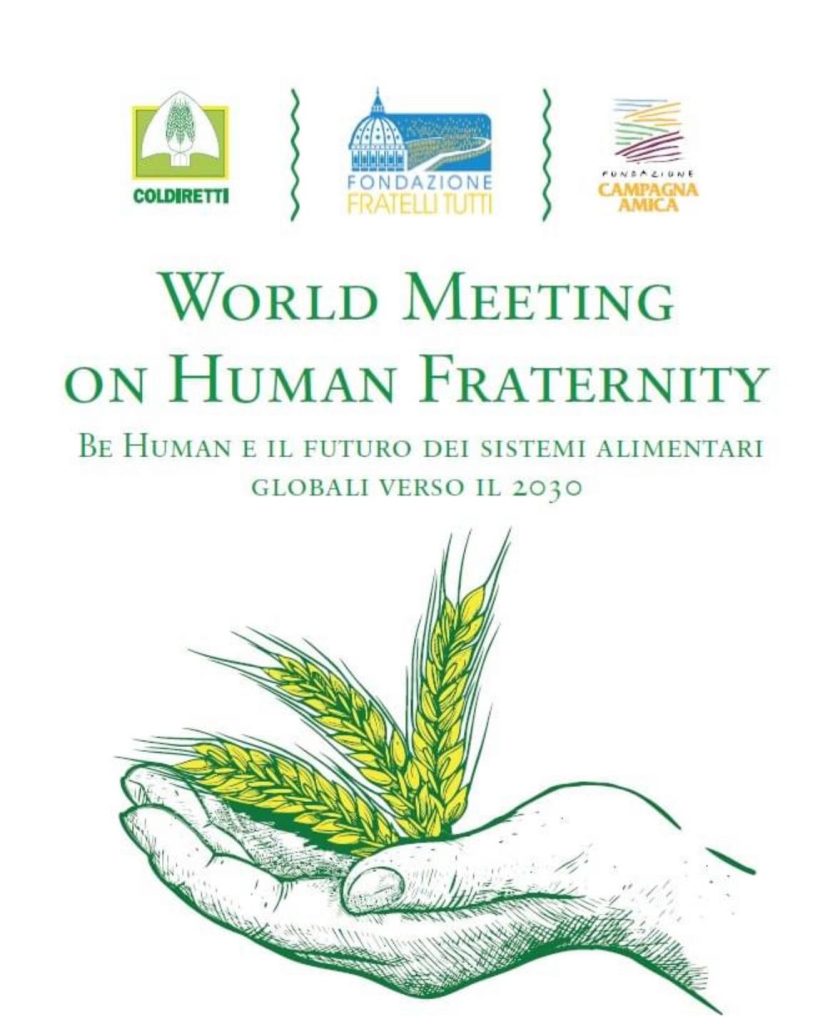In keeping with our belief that farmers market work stands at the intersection of different communities, we are very pleased to collaborate with the visionary efforts led by “Fondazione Fratelli Tutti” — Pope Francis’s vehicle for dialogue with the world. We are part of that world.
After the experience of last year in which the World Farmers Markets Coalition supported Coldiretti and Campagna Amica in San Pietro to talk about the great solidarity that comes from the land, also this year we were proud to participate in the Second World Meeting on Human Fraternity, #BeHuman, organized by Fratelli Tutti Foundation during May 10th and 11th.
This year, the initiative is the second step of a process aimed at rediscovering the value of universal human fraternity, promoting it as a cultural paradigm. The formula that the Holy Father adopted has included 12 working tables placed in Rome and Vatican City on key themes with the desire to spread the paradigm of the culture of fraternity and the teachings contained in the Encyclical “Fratelli Tutti” into every sphere of human activity.
The Themes debated during the working tables are significant for our lives, as those ones developed in the meeting “Be Human and the Future of Global Food Systems towards 2030”, attended by national and international speakers including Rigoberta Menchú Tum, who in 1992 won the Nobel Peace Prize thanks to her commitment in support of the Mayan Indians of Guatemala and for indigenous peoples around the world.
The theme of Food System, in fact, is crucial because it shapes lives, well-being, and human and planetary health, playing a central role in addressing pressing global challenges. Also The United Nations hosted its inaugural Food Systems Summit in 2021, highlighting the interconnectedness of food systems with the Sustainable Development Goals and providing a platform for nations to chart national pathways toward food system transformation.
This context underscores the increasing momentum to influence public policy, private sector actions, and civil society initiatives towards transitioning food systems from unsustainable and inequitable trajectories to a healthier, more equitable, sustainable, and resilient future.
Integral human development, encompassing physical, mental, and social well-being, is pivotal in the transformation of food systems. This necessitates a shift towards sustainable practices that prioritize the health and dignity of individuals worldwide.
In this transition, I would like to underline that democratic principles must prevail, ensuring that citizens have a voice in shaping policies and practices that affect their food security and nutrition. Unfortunately, a significant democratic deficit persists in current food systems. To address this deficit, it is imperative to place citizens at the center of food system transformation, empowering them to participate actively in decision-making processes. Moreover, by engaging citizens in policy design and implementation, governments and institutions can leverage local knowledge and expertise, making food systems more contextually relevant and responsive to community needs.
What is essential is that, in this perspective, the family farming model emerges as important because it provides humans engaged in agriculture with the right tools and scale of control to be flexible and to protect biological diversity.
To conclude, Placing integral human development and democratic principles at the heart of food systems transformation is not only morally imperative but also essential for building a more just, equitable, and sustainable world for present and future generations.
Some Pictures of the working table “Be Human and the Future of Global Food Systems towards 2030”:










